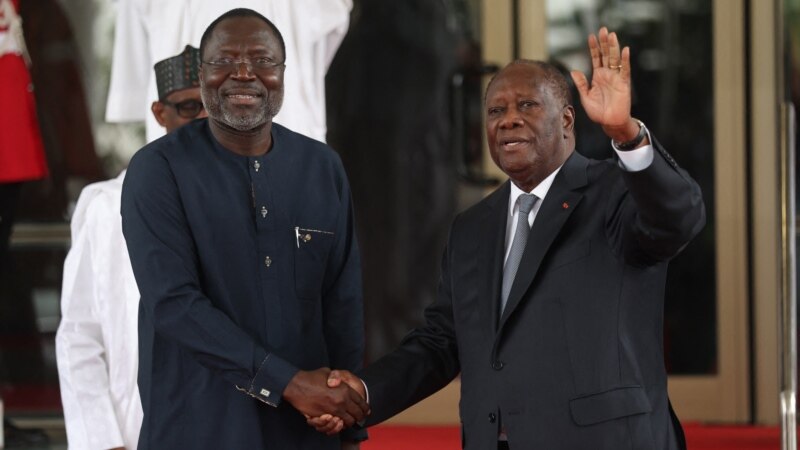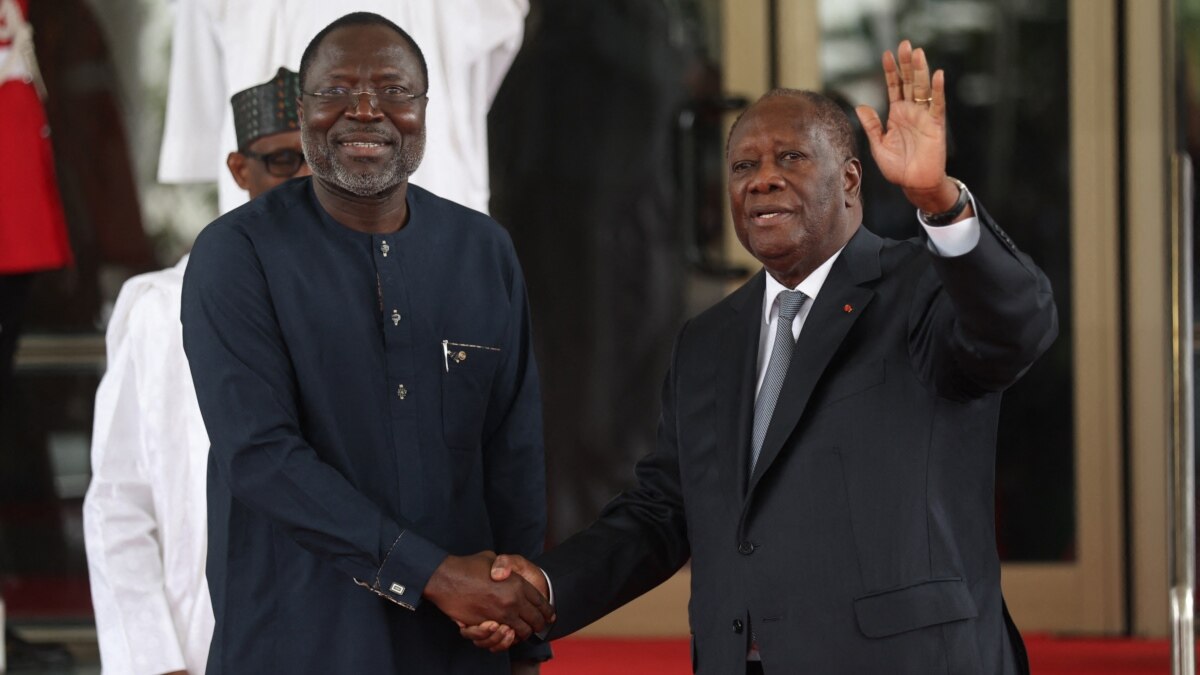This website uses cookies so that we can provide you with the best user experience possible. Cookie information is stored in your browser and performs functions such as recognising you when you return to our website and helping our team to understand which sections of the website you find most interesting and useful.


The West African regional bloc ECOWAS held a news conference Friday in Nigeria's capital, Abuja, hours after coup leaders in Niger announced an alliance with neighboring Burkina Faso and Mali. ECOWAS said it was worried about reports that made it sound as if the bloc is beating the drums of war toward Niger.
ECOWAS President Omar Touray told journalists that Friday's press conference was convened to set the record straight.
Touray said ECOWAS was worried that its announcement earlier this month that it might use military action to restore constitutional order in Niger was being misinterpreted in media reports.
He said, "ECOWAS has neither declared war on the people of Niger nor is there a plan, as has been purported, to invade the country."
Touray said the ECOWAS heads of state and government only activated a full-scale application of sanctions against Niger’s military rulers, including the possible use of force.
He said that authorities would resort to this measure only after deciding that dialogue alone is not deterring coups in the region.
"The current development in the Republic of Niger adds to the list of attempted coups d'etat in the region,” Touray said. “So, you can understand why the heads of state and government have decided that this is one coup too many and resolved that it was time to end the contagion. The situation in the Republic of Niger is particularly unfortunate, as it comes at a time the country is comparatively well in terms of security and economic growth."
Military takeovers are increasing in West Africa, with seven coups since 2020.
The ECOWAS president said the bloc was concerned about the welfare of the people of Niger and that it had noted reports of increased insecurity and human rights violations since the military took over in late July.
Touray said military administrations in the region have not demonstrated capacity to deal with complex political, social and security challenges.
On July 26, soldiers of the presidential guard overthrew Niger's democratically elected leader, President Mohamed Bazoum, and have since held him hostage, ignoring calls for his release.
ECOWAS on August 10 said it had activated a standby force to restore constitutional order in Niger.
Touray spoke to journalists Friday.
"In the interim, the region is employing other elements of its instruments and engaging with the military authorities, as can be attested to by the several missions that have been fielded to the country,” he said. “Nonetheless, preparations continue towards making the force ready for deployment."
Last week, Niger's junta announced a three-year transition plan and, on Thursday, authorized Mali and Burkina Faso's forces to intervene in the country in the event of any military invasion by ECOWAS.
Both countries had warned that invasion of Niger by ECOWAS would mean a declaration of war.
Security analyst Chidi Omeje says there's too much at stake to risk military action.
"I expect them not to put the issue of military intervention on the table at all,” Omeje said. “It shouldn't be discussed because you have to look at the consequences of a military intervention in Niger Republic. In that region, how are you going to mitigate the influx of refugees in Nigeria?"
ECOWAS is hoping that diplomatic efforts will pay off and make it unnecessary to deploy forces. But so far, the junta has resisted pressure to relinquish power.



 Africana55 Radio
Africana55 Radio 
